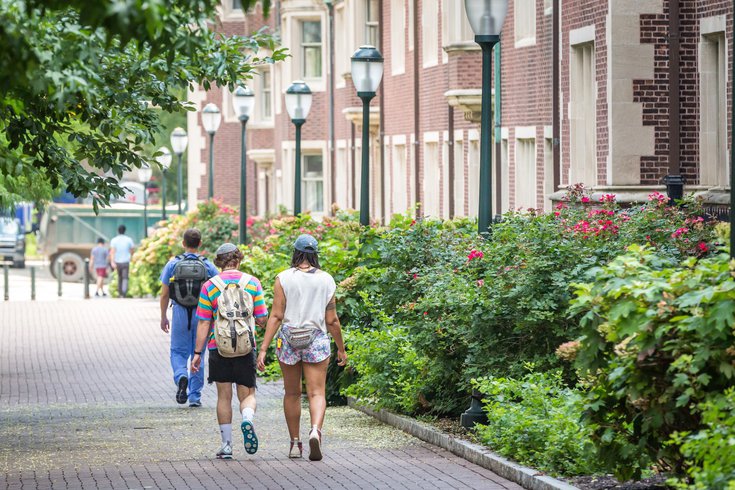
November 17, 2020
 Thom Carroll/PhillyVoice
Thom Carroll/PhillyVoice
College students across the country are preparing to head home for the holidays amid one of the worst COVID-19 spikes since the onset of the pandemic.
College and university students across the country will be flocking back to their hometowns for the holidays amid one of the worst spikes of COVID-19 cases since the onset of the pandemic.
Typically, students go home for Thanksgiving in anticipation of their final exams before returning home for the longer winter break. This year, however, most schools are keeping classes virtual after Thanksgiving to avoid unnecessary travel, PennLive reported.
Despite this added precaution, health officials have expressed concern that students will be posing a risk to their families as they sit at the dinner table.
“What’s going to happen here is that many of them are going to travel home via busses and planes and trains, thereby exposing them to new exposures, and we know that more than half the transmissions in this country are attributable to young, asymptomatic, so-called silent spreaders. People like college students who - not just don’t perceive themselves not to be at risk - they’re not feeling any symptoms. They feel just fine,” professor of health policy and management at the Yale School of Public Health A. David Paltie said to PennLive.
Philadelphia-based universities, such as University of Pennsylvania and Drexel University, were learning remotely for the fall semester, and have not yet announced whether they will be back in person for classes in the spring term.
With the recent spike in cases and Philadelphia's city-wide shutdown, it's likely most universities in the Philadelphia area will remain online for the beginning of the spring semester.
Krys Johnson, an epidemiologist at Temple University's School of Public Health, told PennLive that college students are no longer a part of their family's 'bubble' anymore.
"Any time you’re mixing bubbles it can be an issue. It isn’t just college students. It can be the grandkids going home to see grandma, and not wearing a mask," Johnson said.
PennLive reached out to Penn State, Pitt, Shippensburg, West Virginia and Liberty, and found most schools were encouraging students to get a pre-departure COVID-19 test to make sure they are safe to go home without accidentally spreading the virus to their family members.
Many of these schools are also offering students a space to quarantine on campus for 14 days in the event of a positive test result.
"We wanted our students and our parents to know what the status of their son or daughter is with respect to COVID," Kelly Wolgast, director of the COVID-19 Operations Control Center at Penn State said to PennLive.
Administrators at Pitt imposed a shelter-in-place order on campus last Monday to limit the risk of spreading COVID when students travel home for the holidays. This move was coordinated at the start of the school year, though due to the recent uptick in cases, the start date was pushed to Monday, Dr. John Williams, director of Pitt's COVID-19 Medical Response Office told PennLive.
Williams said preventing COVID is 95% altering human behavior, and 5% getting tested. Tests don't prevent you from getting COVID, but changing your behavior does.
For Pitt students, the shelter-in-place order essentially limits student contact to just roommates. They can still grocery shop and move about the city, but parties and close contact with non-roommates is discouraged.
Most colleges across the country have pushed programming and in some cases community pledges that encourage mask wearing and social distancing.
However, The New York Times created a COVID-19 on campus tracker that recorded more than 250,000 cases across more than 1,700 schools. Penn State had a total of 4,328 cases as of last Thursday.
“I wanted to make the most of the time I have in college and it’s been nice to be here with my roommates and close friends, but the constant stress of making sure everything you do isn’t putting yourself or someone at risk takes a toll,” Keri McGill, a student at the University of Miami, said to PennLive.
For families with a student traveling back home for the holidays, it's recommended you:
“It’s really important to emphasize that this pandemic is worse than we’ve seen before in this country," Johnson, from Temple, said to PennLive. "Even if the holidays this year don’t look as merry and bright as we’re used to, taking precautions to have what I call ‘healthy holidays’ is so important to making sure that we can actually have everyone together for the following holidays, come 2021."